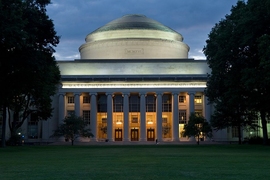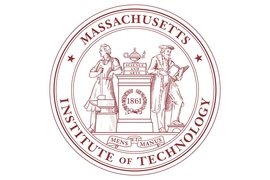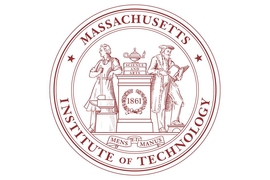This set of FAQs offers information about the founding of the MIT Stephen A. Schwarzman College of Computing, announced today, and its implications for the MIT community and beyond.
General questions
Q: What is MIT announcing today that’s new?
A: Today MIT is announcing a $1 billion commitment to address the global opportunities and challenges presented by the ubiquity of computing — across industries and academic disciplines — and by the rise of artificial intelligence. At the heart of this endeavor will be the new MIT Stephen A. Schwarzman College of Computing, made possible by a foundational $350 million gift from Stephen Schwarzman, the chairman, CEO, and co-founder of Blackstone, a leading global asset manager. An additional $300 million has been secured for the College through other fundraising.
Q: Why is MIT creating this College?
A: The Institute is creating the MIT Schwarzman College of Computing in response to clear trends both inside and outside MIT. Inside MIT, students are choosing in record numbers to study computer science, and departments across the Institute are creating joint majors with computer science and hiring faculty with expertise in computing. And externally, the digital fraction of the global economy has been growing much faster than the economy as a whole — and computing and AI are increasingly woven into every part of the global economy.
Process and leadership
Q: What will implementation look like?
A: MIT will launch a task force prior to the College’s opening in September 2019. The task force will make recommendations to the MIT administration on details regarding the structure of the College; its academic appointments and faculty recruiting; and — in particular — how best to structure the College such that there are seamless interactions in research and teaching between the College and other MIT departments.
Q: When will the College’s first dean be appointed? Do you have a list of leading candidates?
A: The Institute is finalizing a search advisory committee, charged by Provost Martin Schmidt, and is beginning the search process. The committee will move forward with appropriate speed and due diligence to ensure that MIT is ready to launch the College in September 2019.
Q: Will the dean come from within MIT?
A: MIT’s objective is to appoint the most highly qualified leader for this vitally important role. Such a leader may come from within MIT — but the best candidate may also come from outside the Institute. In support of the Institute and its mission, the dean will be responsible for ensuring the success of the College within the MIT community, across the broader MIT innovation ecosystem, and globally.
Q: I’m an MIT community member. How can I learn more and offer thoughts?
A: Both the MIT Corporation and its Executive Committee recently approved the establishment of the new College. But its success will depend on feedback from people across MIT. To jumpstart that process, the Institute has scheduled a number of forums:
Faculty Forum
Thursday, October 18, 5:30-6:30 p.m.
Room 32-123
Student Forum
Thursday, October 25, 5:00-6:00 p.m.
Room 32-123
Staff Forum
Thursday, October 25, 12:00-1:00 p.m.
Room 4-270
In the coming days, MIT will schedule a forum for alumni in the Boston area, as well as one or more webcasts to reach alumni in other regions and time zones. Every forum will include time for questions. To focus the conversations, members of the community are invited to email CollegeofComputingQuestions@mit.edu with questions or concerns.
Impact on MIT
Q: Why is this a college, rather than a school? What is the difference?
A: The MIT Schwarzman College of Computing will work with and across all five of MIT’s existing schools. Its naming as a college differentiates it from the five schools, and signals that it is an Institute-wide entity: The College is designed with cross-cutting education and research as its primary missions.
Q: Why, and how, will the College connect to the schools and other parts of MIT?
A: As MIT’s senior leaders have engaged with faculty and departments across campus, many have spoken of how their fields are being transformed by modern computational methods — specifically, by access to large data sets and the tools to learn from them. Some of the most exciting new work in fields like political science, economics, linguistics, anthropology, and urban studies — as well as in various disciplines in science and engineering — is being made possible when advanced computational capabilities are brought to these fields.
The key connector of the College to MIT’s five schools with be the 25 “bridge” faculty: joint faculty appointments linking the College with departments across MIT. With this new structure, MIT aims to educate students who are “bilingual” — adept in computing, as well as in their primary field. The College will also connect with the rest of MIT through its work to develop shared computing resources — infrastructure, instrumentation, and technical staffing.
Q: Which existing MIT units will move into the College?
A: It is expected that the Department of Electrical Engineering and Computer Science (EECS), the Computer Science and Artificial Intelligence Laboratory (CSAIL), the Institute for Data, Systems, and Society (IDSS), and the MIT Quest for Intelligence will all become part of the new College; other units may join the College. EECS (and in particular, the electrical engineering part of the department) will naturally continue to have a strong relationship with the School of Engineering, its current home. A set of faculty committees will be swiftly established to define the relationship between EECS, the School of Engineering, and the new College of Computing, as well as the range of future degree offerings.
Q: What changes for MIT with this new College? Is this just a restructuring?
A: The founding of the MIT Schwarzman College of Computing is the most significant structural change since 1950, when MIT established the Sloan School of Management and the School of Humanities, Arts, and Social Sciences. But this is much more than a restructuring: With this change, MIT seeks to position itself as a key player in the responsible and ethical evolution of technologies that will fundamentally transform society.
The College will reorient MIT to bring the power of computing and AI to all fields of study — and, in turn, to allow the future direction of computing and AI to be shaped by insights from all of these other disciplines, including the humanities. By design, the MIT Schwarzman College of Computing will be the connective tissue for the entire Institute, integrating AI studies and research with disciplines throughout MIT to a degree and with an intensity that, it is believed, is unmatched anywhere else.
Q: The College has been described as a $1 billion endeavor. Where will that $1 billion come from, and how will it be spent?
A: The estimated $1 billion cost to create the College will pay to construct a new building, expected to be complete around 2022; to create an endowment to support the 50 new faculty positions; and to fund computing resources to support teaching and research in the College and across MIT. The hiring of these new faculty, when complete in approximately five years, will represent a 5 percent growth in the Institute’s total faculty. Including the founding $350 million gift from Mr. Schwarzman, MIT has already secured 65 percent of the funds needed to support launch of the College.
Q: How will this College impact MIT’s budget on an ongoing basis?
A: A guiding principle of MIT’s planning is that the College should not dilute the resources of any other part of the Institute. This is why MIT is engaging in new fundraising to secure the remaining part of the estimated $1 billion needed to house the College and to endow its faculty.
Impact on students and alumni
Q: Do you expect that this new structure could change the balance of undergraduate majors at MIT?
A: About 40 percent of MIT undergraduates now major either in computer science alone or in joint programs combining computer science with some other field. It is expected that this new structure will allow interested students to gain a strong background in computer science while also focusing on a paired discipline that’s of greatest interest to them. By greatly expanding the range of disciplines that can be paired with computer science in a coherent undergraduate degree, this move will support MIT’s students in their clear desire to combine computer science with other fields where they might eventually apply their computing skills.
Q: Will the undergraduate class size be increased?
A: This remains to be determined. However, it is expected that the Institute’s population of graduate students will naturally grow with the addition of 50 new faculty positions.
Q: Will current students be able to switch to the College?
A: In general, MIT students are part of the school or college that is home to their academic program. Because the Department of Electrical Engineering and Computer Science (EECS) will become part of the new College, it is expected that the majority of EECS students will automatically become students within the new College. Students within MIT’s five other schools will, of course, be able to access the College’s faculty, courses, and facilities: Indeed, the College’s cross-Institute structure is intended to make it accessible to students across MIT, and there may be opportunities for students to be affiliated with both the College and their home department and school.
Q: I'm a joint major in computer science and another discipline. How will this new College affect my course selection, and my degree?
A: There should be no effect.
Q: I’m an EECS alum. How will this new College affect my degree?
A: You will continue to hold your MIT degree in your discipline. The creation of the College does not change your degree. This expanded footprint for computing at MIT is expected to enhance the stature of all computing-related fields at MIT.
Impact on faculty
Q: How many new faculty positions will be created with the launch of the College?
A: Fifty faculty positions will be added over the next five years. It’s expected that 25 of these faculty positions will be located fully within the new MIT Schwarzman College of Computing; the other 25 new faculty will hold “bridge” positions — dual appointments between the College and academic departments located in any of MIT’s five schools.
Q: I’m a faculty member whose field has little connection to computing or AI. How will this new College affect my position at MIT?
A: While MIT believes this new opportunity brings much possibility for all faculty, engagement with the new College will be entirely voluntary. Faculty who do not wish to engage more deeply with computing or AI will not be required to do so.
Q: What kinds of new joint academic programs or degrees are envisioned?
A: MIT has been making progress in this direction for some time; for example, we already offer undergraduate majors that pair computer science with economics, biology, mathematics, and urban planning. The MIT Schwarzman College of Computing will allow MIT to respond to the student demand the Institute is seeing in course and major/minor selection more effectively and creatively. It will enable MIT to pursue this vision with unprecedented depth and ambition, and will give MIT’s five schools a shared structure for collaborative education, research, and innovation in computing and AI.
Impact on the physical campus
Q: What is the timeline on construction of a new building for the College? Where will the building be located? Has an architect been selected?
A: The building is expected to be complete by 2022. Many details about the building, including its location on campus, have yet to be finalized. An architect has not been selected.
Q: How big will the new building be?
A: Given the expected growth of the MIT faculty with the launch of the MIT Schwarzman College of Computing, it is currently projected that the new building will house office and laboratory space for about 65 faculty members and their research groups and affiliated staff. This will likely translate to a building of 150,000 to 165,000 square feet. (For comparison purposes, MIT.nano is 200,000 square feet.)
Q: Who will move into the new building?
A: This remains to be determined. However, not all new MIT Schwarzman College of Computing faculty members will be in the new building, and it is expected that some existing faculty members will move there.
The College’s focus
Q: AI encompasses a broad range of areas, from self-driving cars to robotics. Is MIT’s goal to be a leader in all the major AI areas? Are there specific areas the College will focus on?
A: It is hoped and expected that the MIT Schwarzman College of Computing will become a convening force for all of the fields that center on computing and AI. However, the focus of the new College within these fields will be shaped largely by its first dean and by its academic leadership.
Q: Will the new College partner with AI research companies?
A: Numerous such companies are already part of MIT’s broader innovation ecosystem in Kendall Square, and the Institute will continue to collaborate with them. It is fair to assume that projects and research generated by the College will be of interest to industry, and will have commercial relevance. Additionally, it is expected that the “bilingual” graduates who emerge from this new College — combining competence in computing and in other fields — will be of enormous value to employers.
Q: What ethical concerns does MIT have about AI or specific areas of AI research?
A: Advances in computing, and artificial intelligence in particular, have the power to alter the fabric of society. The MIT Schwarzman College of Computing aims to be not only a center of advances in computing, but also a place for teaching and research on relevant policy and ethics — to better ensure that the pioneering technologies of the future are responsibly implemented in support of the greater good.
Q: What kind of programs will there be around ethics and advances in computing?
A: Launching the College will involve both an expansion of existing programs and the creation of entirely new ones — with some of these new programs exploring the intersection of ethics and computing. Within this space, the College will offer prestigious undergraduate research opportunities, graduate fellowships in ethics and AI, a seed-grant program for faculty, and a fellowship program to attract distinguished individuals from other universities, government, industry, and journalism.
Q: Why is this focus on ethics important?
A: Technologies reflect the values of those who make them. For this reason, technological advancements must be accompanied by the development of ethical guidelines that anticipate the risks of such enormously powerful innovations. MIT must make sure that the leaders who graduate from the Institute offer the world both technological proficiency and human wisdom — the cultural, ethical, and historical consciousness to use technology for the common good. MIT is founding the College, in part, to educate students in every discipline to responsibly use and develop AI and computing technologies to help make a better world.
Q: At a time of growing economic disparities, there are deep concerns that AI will begin to replace humans and take over their jobs. How will MIT address such issues?
A: AI and related technologies are poised to become a source of new wealth and industries. Together with that, however, is the risk of severe economic dislocation for individuals, communities, and entire nations. Reinventing the future of work must be a society-wide effort — and finding long-term solutions to issues arising from the deployment of AI will require ideas and initiative from every quarter.
The College will unite expertise at the intersection of computing and the society it serves. Joining scientists and engineers with social scientists, it will produce analysis of emerging technology; this research will serve industry, policymakers, and the broader research community. Some of the graduate students who conduct research in policy and ethics may go on to fill critical roles in government and at technology companies.
Additionally, MIT’s Task Force on the Work of the Future, launched in February 2018, is an Institute-wide effort to understand and shape the evolution of jobs during the current age of innovation. It aims to shed new light on the linked evolution of technology and human work, and will issue findings guiding the development and implementation of policy, to suggest how society can continue to offer broad opportunity and prosperity.
Q: Are there any AI areas in which MIT would not participate because of ethical concerns?
A: Yes. In every action it takes, the Institute must understand whether its participation benefits society. Defining these boundaries will be the work of the College’s new leadership.









